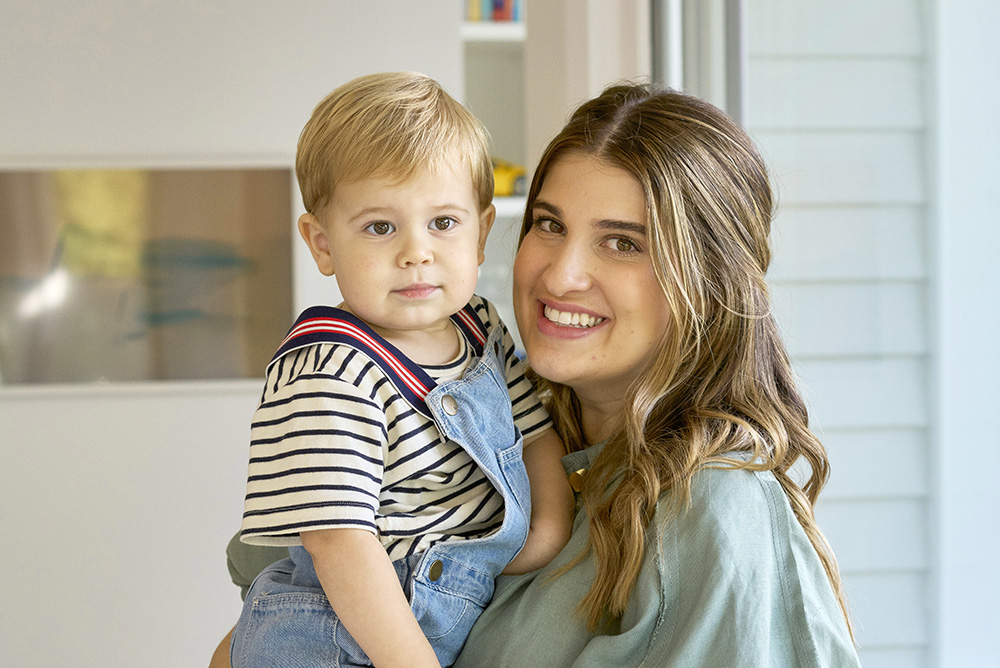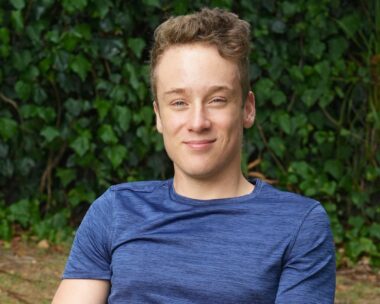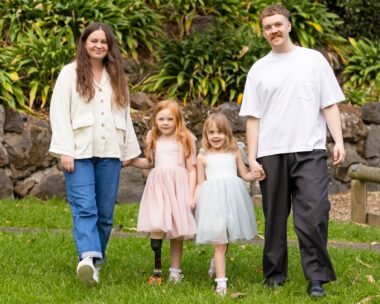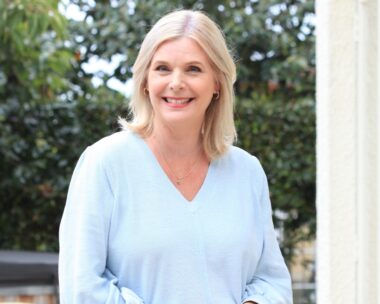In March 2020, when Kiwis woke up to the first day of level four lockdown, pregnant Brittany McNabb woke up to contractions.
But any excitement of meeting her firstborn was overshadowed by the prospect of giving birth – an anxious time for any new mum – during an unprecedented “climate of fear”.
Sharing her story in the hope other mums might feel less alone in their similar experiences, the 27-year-old says she is still working through the trauma following her labour.
“Honestly, of all the pandemic mandates, the restriction surrounding birth could be the one so deeply traumatising that it could cascade a lifetime of effects for both babies and mothers,” Brittany tells the Weekly from her Auckland home. “And I don’t use the word ‘traumatising’ lightly.”
Prior to the Covid-19 outbreak, Brittany had only positive feelings surrounding the labour, but leading up to her due date, there was so much uncertainty as infections ramped up and hospital
rules were changing daily.

For the first seven days in hospital, the new mum had to cope on her own
“There were whispers that they were going to completely stop partners from coming into the hospital during birth. And the thought of that petrified me,” says the young mum. “I was begging my obstetrician to induce me two weeks early as I was already quite distressed.
“The Auckland DHB had set a blanket rule though that there were to be no elective surgeries and inductions were classified as elective. So I was just hoping I’d go into labour before we went into lockdown.”
Her wee son Aston, however, had other ideas. He was born on the first afternoon that New Zealand was plunged into level four on March 25.
Thankfully, Brittany’s husband George, 30, was able to be by her side during labour – where everyone in the room wore masks – but was forced to leave the hospital within half an hour of Aston’s birth.
“Then my son deteriorated in health quite rapidly over the next two hours,” recalls Brittany. “He started grunting with each laboured breath. They were trying to expel fluid from his lungs so he could breathe but ultimately they couldn’t, so he was taken to NICU [Neonatal Intensive Care Unit.]
“It was so overwhelming – I wasn’t allowed to leave the ward, my baby had been taken away and I didn’t have the support of my husband or family.
“The obstetrician left because he had another birth to attend and I never saw him again after that moment, even though he knew I was distressed. I felt so abandoned and totally unsupported.”
Aston was kept in NICU for 14 days attached to a CPAP machine to support his breathing. Due to Covid restrictions, Brittany wasn’t allowed to have a support person there with her during that time.
“On day seven, they moved us to a family room and allowed George in, so it was the first time since giving birth we had been together. That was a really special moment for us.”

‘I didn’t plan on giving birth through such a climate of fear’
On reflection, Brittany says that while she understands the hospital’s priority to keep Covid under control on wards, she still feels “let down” by its stringent protocols surrounding births.
“What I needed was somebody to support me through my experience. The doctors and nurses knew that it was really hard for new mothers, but they were terrified of Covid themselves.
“I didn’t plan on giving birth through such a climate of fear,” she muses. “Obviously, we have the luxury of hindsight now knowing that things are going to end up somewhat okay. But at the time, we didn’t know what the original variant of Covid meant for our health and it seemed a lot scarier.”
It’s estimated about 6700 babies were born in New Zealand during alert levels four and three.
Brittany has since worked with a therapist to process her experience. After the first lockdown, restrictions around giving birth lasted longer than some others.
“It doesn’t make sense that we could go out to restaurants and weddings, yet still have such stringent restrictions surrounding birthing support. That can have a lifetime of impact for mothers in the context of post-natal depression and damaged attachment.
“I certainly don’t feel confident yet going into a second pregnancy that it wouldn’t reignite some of those traumas surrounding Aston’s birth. I still have a lot of healing to do.”
Although Covid disruptions have meant it’s been a fairly lonely road for most new mums, Brittany has found a sense of community among the collective support of her antenatal group – all of whom shared the same high level of fear entering into their lockdown births.
Two years on, she’s studying to become a registered psychotherapist and their “cheeky” toddler Aston is loving being able to socialise with other children at day care. “Despite his experience so far – of masks and people being disconnected from each other – he’s incredibly social and loves people,” she smiles.
“He’s taken everything in about the pandemic too. He’ll hear people coughing and go, ‘Uh oh, coughing!'”
Adds Brittany, “It’s true what they say about it taking a village to raise a child. We’re not designed to do this alone.”




